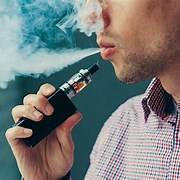Supreme Court wrestles with FDA’s attempt to curb access to flavored vapes
On Monday, the Supreme Court heard oral arguments concerning the FDA's efforts to restrict flavored e-cigarettes, which have gained popularity among school-aged children. The case revolves around a lawsuit from the vaping industry, which challenges the agency’s decision to block products with flavors like Pink Lemonade and Rainbow Road. Public health advocates have raised alarms about a surge in youth vaping, with the FDA reporting that 19% of high school students and 4.7% of middle school students vaped in 2020, far exceeding the number who smoked.
The dispute stems from a series of denials during the first year of the Biden administration for vaping products, which the FDA claimed targeted minors with appealing flavors. This legal battle is complicated by broader political pressures, including former President Donald Trump's fluctuating stance on vaping, with him promising to save vaping at times. Some of the Court’s conservative justices raised concerns about how the FDA reviewed market applications, suggesting that the agency might have changed its criteria for approval during the process. Justice Clarence Thomas, in particular, suggested the FDA's methods were inconsistent.
Curtis Gannon, representing the FDA, countered that the law was clear regarding the evidence needed for approval. Justice Samuel Alito expressed concern that the FDA had not provided clear guidance to the vaping industry on what evidence was required. On the other hand, Justice Brett Kavanaugh signaled that he might support the FDA, acknowledging the uncertainty in regulatory decisions.
The Court's liberal justices, including Sonia Sotomayor, supported the FDA’s position, noting the addictive nature of nicotine and its potential to hook both adults and children. Justice Elena Kagan also agreed, stating that the FDA’s skepticism about the health benefits of vaping was clear, making it reasonable for the industry to present as much evidence as possible.
The case is part of a larger regulatory issue, as Congress gave the FDA new powers to regulate tobacco products in 2009. In 2016, the FDA determined that e-cigarettes qualified as tobacco products and began reviewing vaping products. The industry argues that the FDA changed its evaluation methods midway through the process, requiring additional evidence that flavored products were more effective than tobacco-flavored ones in helping smokers quit.
This legal battle is particularly significant as the Trump administration’s incoming influence could lead to changes in how the FDA handles these products, though any such changes would likely face legal challenges.


